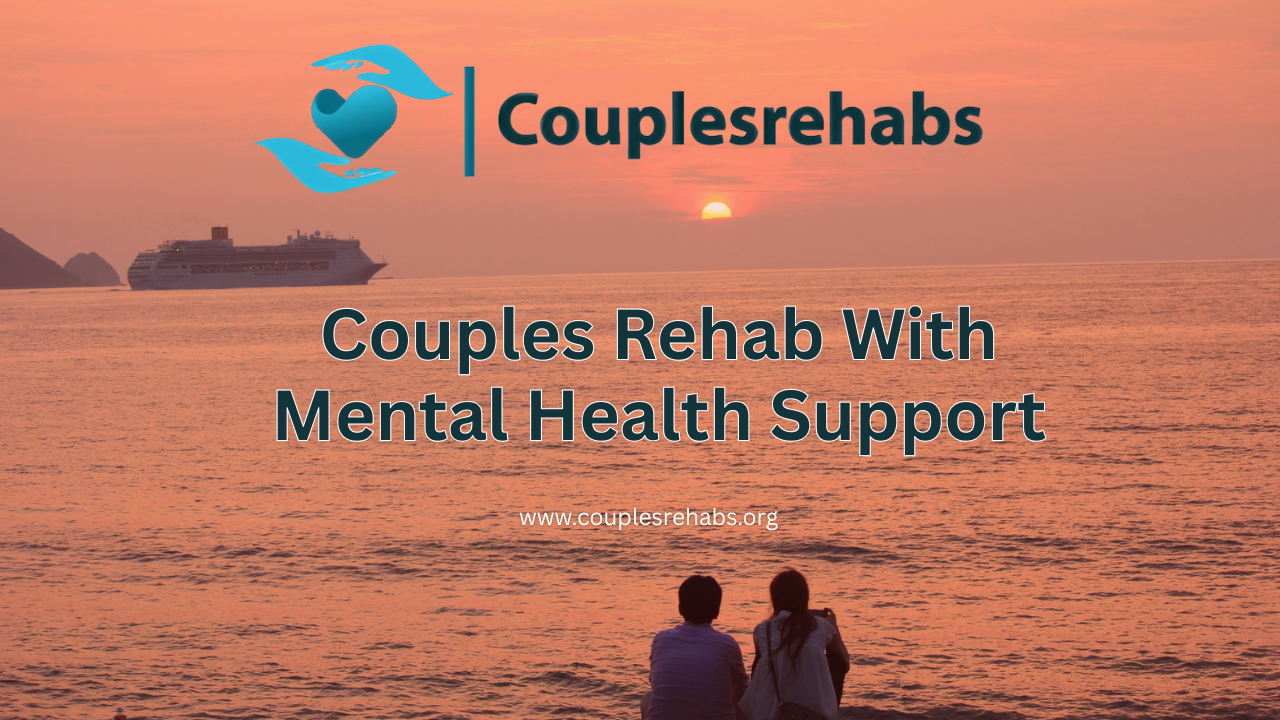Couples Rehab With Mental Health Support
Recent studies reveal that nearly 60% of individuals battling addiction also struggle with co-occurring mental health disorders. But here’s what the statistics don’t capture—when you’re part of a couple where both partners are fighting these demons, the complexity multiplies exponentially. You’re not just dealing with two separate cases of dual diagnosis; you’re managing an intricate system where each person’s struggles directly impact their partner’s ability to recover.
Couples rehab with mental health support represents a revolutionary approach to recovery that treats the relationship as both the battleground and the pathway to healing. Unlike traditional treatment methods that separate partners into individual programs, this integrated approach recognizes a fundamental truth: when addiction and mental health challenges affect a couple, recovery must happen as a team effort.
Understanding the Connection Between Addiction and Mental Health in Relationships
What many couples don’t realize is how deeply intertwined addiction and mental health truly are. We’ve worked with countless couples who started using substances to cope with untreated depression, anxiety, or trauma—only to find themselves trapped in a cycle where the addiction worsened their mental health, which then fueled more substance use.
Take Sarah and Mike (names changed for privacy), a couple I worked with last year. Sarah began drinking heavily to manage her social anxiety, while Mike turned to prescription opioids after a back injury triggered his PTSD from military service. Their individual struggles created a perfect storm within their relationship. They weren’t just enabling each other’s substance use—they were unknowingly reinforcing each other’s mental health symptoms.
Research from the National Institute on Drug Abuse shows that approximately 37% of alcohol abusers and 53% of drug abusers also have at least one serious mental illness. But here’s the kicker: when you’re in a relationship with someone who shares these struggles, the co-dependency runs deeper than most people understand.
Common Mental Health Challenges in Couples Facing Addiction
Mental health conditions appear frequently alongside addiction in couples:
Depression and Substance Abuse often create what we call a “downward spiral effect.” One partner’s depression leads to substance use, which deepens the depression, affecting the relationship dynamic and potentially triggering similar responses in their partner.
Anxiety Disorders and Addiction present unique challenges because substances initially seem to provide relief from overwhelming worry or panic. However, as tolerance builds and withdrawal symptoms emerge, anxiety typically worsens significantly.
Trauma-Related Disorders are particularly complex in couples treatment. Often, both partners carry unresolved trauma—sometimes from childhood, military service, accidents, or even relationship violence. They may have been using substances to numb emotional pain for years.
Bipolar Disorder and Substance Use create an especially volatile combination. The mood swings associated with bipolar disorder can be intensified by substance use, creating chaos within the relationship and making recovery planning incredibly challenging.
What Makes Couples Rehab Different from Individual Treatment?
Here’s something that might surprise you: treating couples together often produces better outcomes than individual treatment alone. Why? Because addiction rarely exists in isolation—it’s woven into the fabric of the relationship itself.
When we work with couples, we’re not just addressing two separate addiction problems. We’re examining the relationship dynamics, communication patterns, and shared triggers that keep both partners stuck in destructive cycles. Individual therapy is crucial, absolutely, but couples therapy addresses the ecosystem where the addiction thrives.
The integrated approach means we’re simultaneously working on sobriety, mental health stabilization, and relationship repair. It’s like fixing a complex machine—you can’t just replace one part and expect everything else to function properly.
Integrated Treatment Approaches for Couples
Behavioral Couples Therapy forms the backbone of most effective programs. This approach helps couples identify and change the behaviors that support continued substance use while building new, healthier interaction patterns.
Cognitive-Behavioral Therapy for Couples focuses on changing thought patterns and beliefs that contribute to both addiction and relationship problems. I often see couples who’ve developed distorted thinking about their substance use, their partner’s behavior, and their relationship’s future.
Family Systems Therapy looks at the couple as part of a larger system—including extended family, children, work relationships, and social circles. Sometimes the pressure to maintain certain roles or meet family expectations contributes to ongoing substance use and mental health struggles.
Trauma-Informed Care is essential when working with couples, as trauma histories often intertwine in complex ways. Both partners may be triggered by similar situations, or one partner’s trauma response might trigger the other’s coping mechanisms.
Types of Couples Rehab Programs with Mental Health Support
The treatment landscape offers several options, each designed to meet couples at different stages of their recovery journey and life circumstances.
Inpatient Couples Therapy for Substance Abuse and Depression
Residential treatment provides the most intensive level of care, and honestly, it’s sometimes exactly what couples need. When we recommend inpatient treatment, it’s usually because the addiction and mental health symptoms have become so severe that 24/7 medical supervision is necessary.
These programs typically last 30-90 days and provide round-the-clock support. The beauty of residential treatment lies in removing couples from their typical environment—away from triggers, enabling friends, and the stressors that contributed to their substance use. They can focus entirely on recovery without the distractions of work, household responsibilities, or social pressures.
The structured environment includes individual therapy, couples counseling, group sessions, medical monitoring, and psychiatric care. For couples dealing with severe depression alongside addiction, this level of support can be life-saving.
Outpatient Couples Addiction Recovery with Co-occurring Disorder Treatment
Not every couple needs residential treatment, and that’s perfectly fine. Outpatient programs offer flexibility for couples who need to maintain work schedules, care for children, or have other responsibilities they can’t abandon.
These programs typically involve 10-20 hours of treatment per week, including individual sessions, couples therapy, group counseling, and psychiatric appointments for medication management. The key advantage? Couples practice their new skills in real-world situations while still having professional support.
We’ve seen tremendous success with couples who attend intensive outpatient programs together. They learn to navigate triggers in their actual environment while building new communication skills and coping strategies.
Luxury Couples Rehab for Addiction and Mental Health Challenges
Let’s be honest—some couples prefer (and can afford) premium treatment options. Luxury rehab facilities offer everything from private suites and gourmet meals to spa services and recreational therapy.
But here’s what really matters about these programs: they often provide lower staff-to-client ratios, meaning more individualized attention. The amenities are nice, but the real value lies in personalized treatment planning and access to specialized therapies that might not be available in standard programs.
Christian Couples Rehab with Mental Health Support Programs
Faith-based treatment recognizes the spiritual dimension of recovery. For couples whose faith is central to their identity, these programs integrate biblical principles with evidence-based treatment approaches.
We’ve witnessed powerful transformations when couples reconnect with their spiritual foundation during recovery. The combination of professional therapy and spiritual counseling can address guilt, shame, and moral conflicts that often accompany addiction and mental health struggles.
Specialized Treatment for Specific Conditions
Dual Diagnosis Treatment for Couples: Addiction and Anxiety
Anxiety disorders are incredibly common among couples in recovery. The constant worry, panic attacks, and avoidance behaviors can derail recovery efforts if not properly addressed.
Treatment involves medication management (when appropriate), cognitive-behavioral techniques for managing anxiety, exposure therapy for specific phobias, and couples counseling to address how anxiety affects the relationship dynamic. Partners learn to support each other without enabling avoidance behaviors.
Couples Residential Treatment for Trauma and Substance Use Disorders
Trauma work requires specialized expertise and often residential-level support. Many couples have experienced individual trauma, but some have shared traumatic experiences—car accidents, violence, loss of a child, or military deployment.
Treatment includes EMDR (Eye Movement Desensitization and Reprocessing), trauma-focused cognitive therapy, somatic experiencing, and specialized couples therapy techniques for trauma survivors. The goal isn’t just symptom reduction—it’s post-traumatic growth and deeper relationship connection.
Specialized Couples Rehab for Alcohol Addiction and Bipolar Disorder
This combination requires careful coordination between addiction counselors and psychiatrists. Mood stabilizers are often necessary, but finding the right medication while managing addiction recovery can be tricky.
Treatment focuses on mood monitoring, medication compliance, identifying triggers that affect mood stability, and helping partners understand how bipolar symptoms influence relationship dynamics. Both partners learn to recognize early warning signs of mood episodes and develop response strategies.

How to Find the Right Couples Rehab Program
Choosing the right program can feel overwhelming, but asking the right questions makes all the difference.
Questions to Ask Treatment Centers
Start with these essential questions: What’s your success rate with couples treatment? How do you handle dual diagnosis cases? What’s the ratio of individual to couples therapy? Are your therapists specifically trained in couples addiction treatment? How do you involve family members in the process?
Don’t forget practical considerations: What insurance do you accept? Can couples stay together during residential treatment? What happens if one partner wants to leave treatment early? How long is the typical program? What aftercare support do you provide?
Affordable Couples Rehab with Integrated Mental Health Counseling
Cost shouldn’t prevent couples from getting help. Many insurance policies now cover addiction and mental health treatment (thanks to parity laws), including couples therapy when medically necessary.
Community health centers, state-funded programs, and sliding-scale fee programs exist in most areas. Some treatment centers offer payment plans or financial assistance programs. The key is asking about all available options—don’t assume you can’t afford treatment without exploring every possibility.
The Treatment Process: What to Expect
Initial Assessment and Dual Diagnosis Evaluation
The intake process for couples involves comprehensive individual assessments plus relationship evaluation. We examine substance use history, mental health symptoms, trauma history, relationship dynamics, family history, and social support systems.
This typically takes several hours and involves both partners individually and together. The goal is understanding not just individual struggles but how they interact within the relationship.
Couples Behavioral Therapy for Addiction and Relationship Issues
The heart of couples treatment involves learning new ways to communicate, resolve conflicts, and support each other’s recovery. We practice these skills in session, then couples apply them in real-life situations.
Common focus areas include: improving communication skills, developing healthy boundaries, creating shared recovery goals, managing triggers together, rebuilding trust and intimacy, and planning for potential setbacks.
Success Stories and Recovery Outcomes
While we can’t share specific details due to confidentiality, I can tell you that couples who complete specialized dual diagnosis treatment show significantly better outcomes than those who attempt individual treatment alone.
Research indicates that couples who participate in behavioral couples therapy have approximately 60% better substance abuse outcomes compared to individual treatment. Even more encouraging, relationship satisfaction scores typically improve dramatically, with many couples reporting their relationship is stronger post-treatment than it was before addiction developed.
Supporting Your Partner Through Dual Recovery
Recovery isn’t something that happens to one partner while the other watches from the sidelines. Both partners are actively engaged in the process, even if their specific challenges differ.
Key principles include: focusing on your own recovery first (you can’t save someone else while drowning), learning to communicate needs clearly without demanding compliance, celebrating small victories together, maintaining realistic expectations about the recovery timeline, and staying connected to your treatment team even after formal treatment ends.
Aftercare and Continuing Support
Recovery doesn’t end when formal treatment concludes—it’s a lifelong journey. Most successful couples continue some form of therapy for months or years after completing intensive treatment.
Support groups specifically for couples in recovery provide ongoing encouragement and practical advice. Many couples find that attending meetings together strengthens their commitment to sobriety and relationship health.
Frequently Asked Questions About Couples Rehab with Mental Health Support
How much does couples rehab with mental health support cost? Outpatient programs range from $5,000-$15,000 per person for 90 days, while residential treatment costs $30,000-$80,000 monthly. Most insurance plans cover treatment due to federal parity laws, and many facilities offer payment plans or sliding scale fees.
What’s the success rate for couples who complete treatment together? Couples who participate in behavioral couples therapy show 60-70% better outcomes than individual treatment alone. About 75-80% report stronger relationships post-treatment than before addiction developed.
Can we bring our children to couples rehab? Most residential facilities don’t allow children on-site, but many offer family therapy sessions and childcare during outpatient programs. Discuss childcare needs during admissions.
What happens if one partner wants to leave treatment early? Programs have protocols including individual counseling, modified treatment plans, and step-down options. The remaining partner receives additional support and may transition to individual programming.
Do you treat same-sex couples? Yes, quality treatment centers provide inclusive care regardless of sexual orientation or gender identity. Many therapists receive specialized LGBTQ+ training.
Can we stay together during residential treatment? Most facilities accommodate couples with separate rooms and some individual programming while maintaining connection throughout treatment.
What if only one of us has a diagnosed mental health condition? Treatment addresses the relationship system, so both partners benefit. The non-diagnosed partner often discovers unaddressed concerns or learns valuable support skills.
How long does treatment typically take? Most couples benefit from at least 90 days of intensive treatment, followed by ongoing outpatient support. Duration varies based on severity and treatment history.
Will insurance cover couples therapy? Many plans cover couples therapy when medically necessary for addiction or mental health treatment. Coverage varies, so verify benefits before starting.
What if we’ve tried couples therapy before and it didn’t work? Previous unsuccessful attempts don’t predict failure in specialized addiction treatment. The key difference is addressing underlying substance use and psychiatric conditions that may have sabotaged previous efforts.
Finding Hope: Your Next Steps Toward Recovery
Recovery is possible, even when addiction and mental health challenges have consumed your relationship for years. The couples we work with often feel hopeless when they first arrive, convinced their relationship is beyond repair. Yet time and again, I witness remarkable transformations when couples commit to the process together.
At Couples Rehabs, we specialize in exactly this type of integrated treatment. Our team understands that your addiction and mental health struggles didn’t develop overnight, and recovery won’t happen overnight either. But with the right support, evidence-based treatment, and commitment to the process, you can rebuild both your sobriety and your relationship.
Don’t wait for things to get worse before seeking help. The earlier you address both addiction and mental health challenges together, the better your chances of long-term success. Your relationship—and your individual well-being—are worth fighting for.
If you’re ready to take the first step toward recovery, contact Couples Rehabs today. Our admissions specialists can help you understand your options, verify insurance coverage, and begin planning your path to healing. Recovery is a journey best traveled together, and we’re here to guide you every step of the way.









Recent Comments